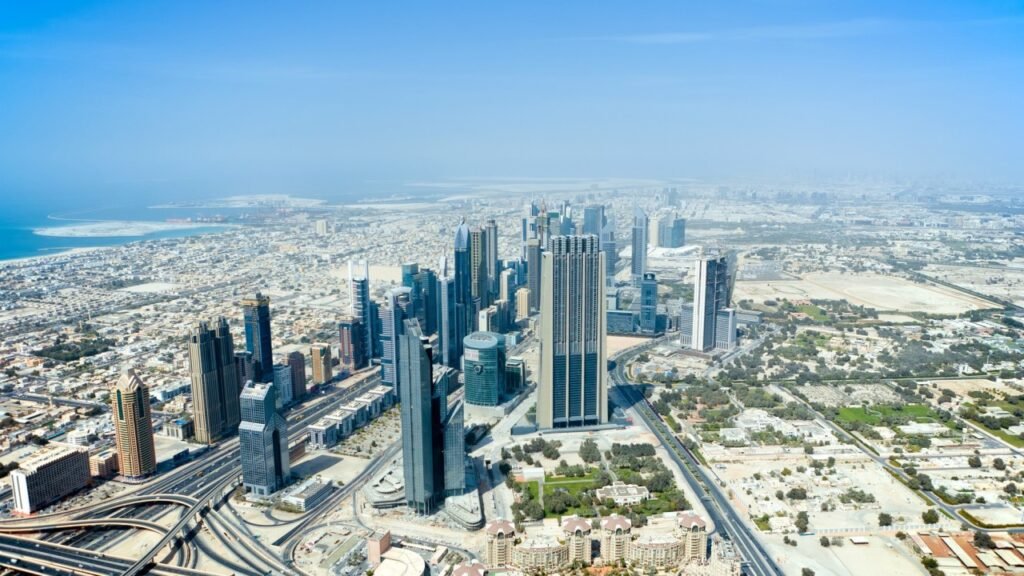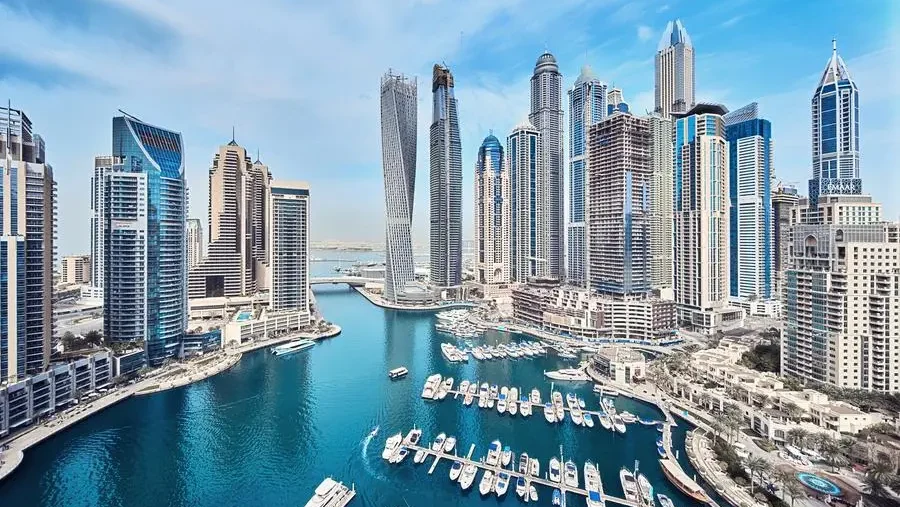Dubai’s property market is back in the spotlight, with prices soaring to levels not seen since before the 2008 financial crash. The city’s real estate sector has shown remarkable resilience, attracting global investors and wealthy buyers. Experts believe that the current surge is more sustainable, fueled by improved regulations, a growing economy, and a booming tourism sector.
What’s Driving the Surge?
Several factors are contributing to Dubai’s property market recovery. First, the government has introduced investor-friendly policies, including long-term residency visas and relaxed ownership laws. This has boosted foreign investor confidence.
Second, Dubai’s strategic location as a global business hub continues to attract professionals and entrepreneurs. Infrastructure projects like the expansion of Al Maktoum International Airport and the UAE’s smart city initiatives further enhance the appeal.


Third, the city’s luxury property market is witnessing growing demand. High-net-worth individuals are eyeing premium developments, including waterfront residences and branded apartments. Notable areas like Palm Jumeirah, Dubai Marina, and Downtown Dubai remain investor favorites. Even suburban communities like Arabian Ranches and Jumeirah Village Circle are seeing increased interest due to more affordable options.
Comparing to the 2008 Boom
While the 2008 boom was largely speculative, the current surge is characterized by steady demand and controlled development. Developers are now more focused on delivering quality projects rather than flooding the market with excess supply. Additionally, banks have implemented stricter lending rules, reducing the risk of a credit bubble.

According to recent data, property prices in Dubai have risen by over 20% year-on-year. Luxury properties, in particular, have seen a spike in demand, with transactions exceeding billions of dirhams. Industry reports suggest that while luxury and waterfront developments are leading the charge, mid-range housing options are also performing well as Dubai’s population continues to grow.
Government Initiatives Supporting Growth
Dubai’s leadership has played a crucial role in stabilizing the property sector. Initiatives like the Dubai 2040 Urban Master Plan ensure sustainable growth by balancing residential, commercial, and green spaces. The government’s commitment to attracting global talent through initiatives like the Golden Visa has also spurred demand.
Moreover, Expo 2020 Dubai significantly boosted the city’s visibility, leading to increased investor interest. The event showcased Dubai’s world-class infrastructure and innovative spirit, leaving a lasting impact on the property market.

The Real Estate Regulatory Agency (RERA) has also enhanced transparency and accountability. Regulatory measures like escrow accounts and project completion monitoring have restored investor confidence, ensuring buyers receive what they’re promised.
Is It a Good Time to Invest?
Experts suggest that for both seasoned investors and first-time buyers, Dubai remains a lucrative market. Rental yields are among the highest globally, making it an attractive destination for those seeking returns on investment. Additionally, with major infrastructure projects on the horizon, long-term growth prospects remain strong.
Luxury real estate remains the star performer, but even mid-market and affordable housing developments are gaining traction. Investors are particularly eyeing properties in the city’s emerging neighborhoods, where lower prices offer higher potential for capital appreciation.
However, analysts advise investors to conduct thorough research and consider factors like location, developer reputation, and market trends before making a purchase. While growth appears sustainable, real estate investments always carry inherent risks, particularly in rapidly growing markets like Dubai.
Global Investors Flocking to Dubai
Dubai’s property surge has drawn the attention of global investors from Europe, Russia, China, and India. Recent geopolitical uncertainties have made the city a safe haven for wealth preservation. The government’s decision to offer tax incentives and competitive business policies has further boosted its appeal.
Additionally, the rise of remote work has prompted professionals to relocate to Dubai, enticed by its luxury lifestyle and tax-free income. This influx has significantly contributed to the demand for both short-term rentals and permanent residences.
Sustainability and Innovation in Real Estate
Developers are also embracing sustainable and tech-integrated solutions in new projects. From smart homes with automated systems to energy-efficient buildings, sustainability is becoming a major focus. Communities like Dubai Sustainable City serve as a model for environmentally friendly developments, reducing carbon footprints and offering residents a greener lifestyle.
Furthermore, technological innovations in real estate management, such as blockchain-based property transactions and virtual property viewings, have made investing in Dubai’s market more accessible than ever.
Conclusion
Dubai’s property market comeback is a testament to the city’s resilience and strategic planning. While it has faced challenges in the past, the current growth is marked by stability and confidence. For investors and homeowners alike, Dubai presents an opportunity to be part of one of the world’s most dynamic real estate markets.
With its ambitious vision for the future, Dubai continues to solidify its status as a global property hotspot. Whether you’re eyeing a luxury penthouse, a family villa, or a lucrative investment property, the city’s real estate renaissance is undoubtedly one to watch.
Also read: Why Everyone’s Talking About Ajman’s New Tourism Boom












